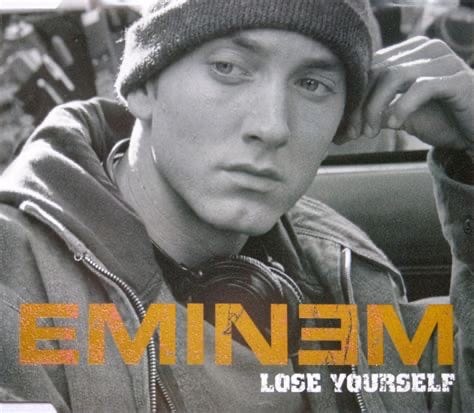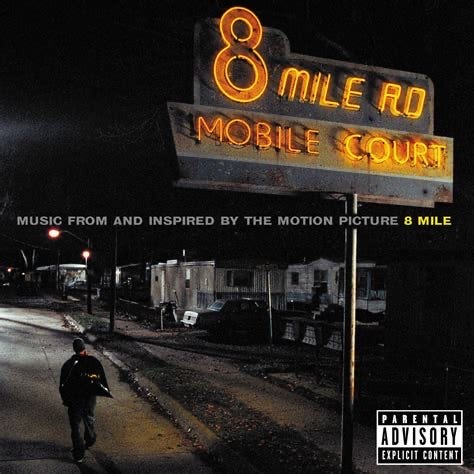FLASHBACK: Eminem’s “Lose Yourself”
THIS DAY IN MUSIC IN MEDIA HISTORY - April 28th
Eminem’s “Lose Yourself”
Wins First-Ever MTV Movie Award for Best Song From a Movie (April 28, 2003)
In a major breakthrough for music’s role in cinema, on April 28, 2003, Eminem made history when “Lose Yourself”, his searing anthem from 8 Mile, won the inaugural Best Song from a Movie award at the MTV Movie Awards.
This was more than just a trophy — it was a cultural signal that music was becoming inseparable from a film’s emotional and commercial power.
“Lose Yourself” perfectly captured the grit and hope of 8 Mile, and its recognition launched a new era where film soundtracks became vital for marketing, storytelling, and even Oscar contention.
Behind the scenes, Eminem, Shady Records, and Interscope Records negotiated a groundbreaking music publishing and soundtrack agreement that allowed Aftermath Entertainment and Universal Music Publishing Group to secure long-term control of the song’s master and publishing rights — a model still studied today in sync licensing deals.
——
Licensing & Visual Media Placement Highlights
Track Name: “Lose Yourself”
Film Placement: 8 Mile (2002, Universal Pictures) – Original use.
Film Trailer Reuse: Southpaw (2015, The Weinstein Company) – featured “Lose Yourself” in the official trailer.
Television Use: Featured across MTV retrospectives and multiple ESPN spots for athlete profiles and sports documentaries.
Advertising: Apple’s iPod + iTunes (2003–2004) campaign used “Lose Yourself” in promotions.
Gaming Placement: DJ Hero (2009, Activision) — remix battle.
Recent Deal (2024): Licensed for Beats by Dre 2024 campaign titled “Moments Matter.”
———
Sync Licensing & Publishing Oversight and Summary:
Master Rights: Shady/Aftermath/Interscope Records (UMG)
Publishing Rights: Universal Music Publishing Group
Eminem retains significant co-ownership rights, a rare and savvy move in artist contracts at the time.
———
Streaming Data to Date:
———
Chart Performance and Sales Data:
Billboard Hot 100: #1 for 12 consecutive weeks (2002–2003)
Certified Diamond (10x Platinum) by the RIAA (United States)
Certified 6x Platinum in the UK (BPI)
Top 5 across Europe, Australia, and Asia
8 Mile Soundtrack: Sold over 5 million copies worldwide
Soundtrack went to #1 on the Billboard 200
———
Awards:
Academy Award (Oscar): Best Original Song (2003)
Grammy Awards: Best Rap Song, Best Male Rap Solo Performance (2004)
MTV Movie Awards: Best Song from a Movie (2003)
Critics’ Choice Movie Awards: Best Song (2003)
———
Why This Matters for Sync & Licensing History:
“Lose Yourself” not only became Eminem’s biggest song — it reshaped how the music business viewed artist control of music rights in film and advertising.
Eminem’s aggressive negotiations around ownership and licensing flexibility paved the way for a generation of artists to demand greater control over their master and publishing rights — something that remains a central focus in 2025 deals.
The song’s emotional power also proved how a single track could elevate a film’s box office, award success, and long-term cultural impact — reinforcing the idea that music wasn’t just background, it was a main character.
—
Last Thoughts:
Even today, “Lose Yourself” remains a gold standard for music-in-film sync deals — proof that one perfectly placed song can create both lasting emotional connection and massive commercial opportunity.
Its influence is everywhere: in Oscar-winning film soundtracks, in artists fighting for masters and publishing ownership, and in how studios now negotiate music placements during a film’s earliest stages.
———
CALL TO ACTION:
Love learning about the real business behind music and media?
FOLLOW: @americanmusicmedia
SUBSCRIBE: https://americanmusicmedia.substack.com
Disclaimer: The information provided in this post is based on publicly available sources and internet research. While we strive for accuracy, some streaming numbers, chart positions, and licensing placements may vary or be incomplete. This content is intended to give a general overview of each project’s historical impact and licensing footprint to date.





